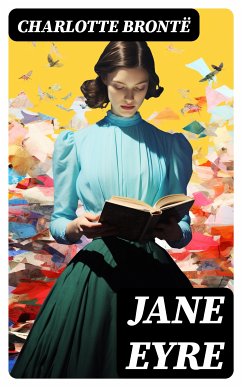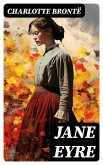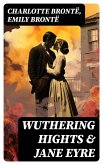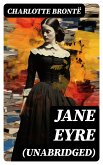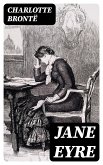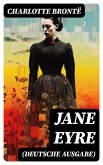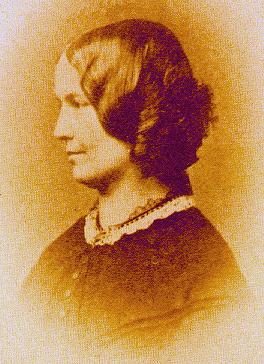Charlotte Brontë's 'Jane Eyre' is an incandescent novel that transcends its era, weaving a narrative that melds a fervent critique of social conditions with a powerful, gothic love story. Written with a robust and introspective first-person voice, Brontë's prose explores themes of class, sexuality, religion, and gender, challenging the norms of Victorian literature. The protagonist, Jane Eyre, emerges as a figure of immense emotional depth and integrity, charting a course from a bleak and repressive childhood to an adulthood where she strives for moral and emotional autonomy, all while hauntingly narrating her passion for the enigmatic Mr. Rochester amidst the austere Thornfield Hall. Brontë's use of the Bildungsroman genre is distinct in its feminist inflection, charting Jane's psychological and moral growth with a keen eye on the constraints and oppressions faced by women of the time. The creation of 'Jane Eyre' was undoubtedly influenced by Charlotte Brontë's own experiences. Growing up in the remote Yorkshire Moors, Brontë, like her character, faced loss, isolation, and limited prospects due to her social standing. Her time as a governess and her education at a strict, charity school further informed her intimate understanding of the rigid social hierarchies and the plights of women depending on their employment for survival. Brontë funnels these personal hardships and observations into a narrative that sears with its honesty and revolutionary perspective on the inner lives of women, thus crafting a novel that endures both as a personal testament and as a commentary on the broader societal context. 'Jane Eyre' stands as an indispensable read for those who seek to understand the roots of feminist literature and the early stirrings of modern individualism. Readers who appreciate thorough character development, nuanced emotional landscapes, and a resilience of spirit will find themselves allied with Jane's journey. In its pages, they will encounter a work that not only reflects a historical moment but resonates with ongoing dialogues about personal liberty, ethical love, and the right to one's own selfhood. It is a testament that the path towards discovering one's true voice and place in the world can be fraught with hardship but ultimately leads to self-empowerment and recognition.
Dieser Download kann aus rechtlichen Gründen nur mit Rechnungsadresse in A, B, BG, CY, CZ, D, DK, EW, E, FIN, F, GR, H, IRL, I, LT, L, LR, M, NL, PL, P, R, S, SLO, SK ausgeliefert werden.

